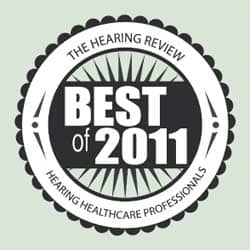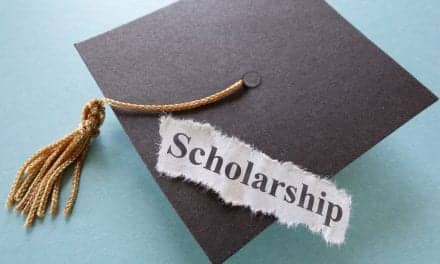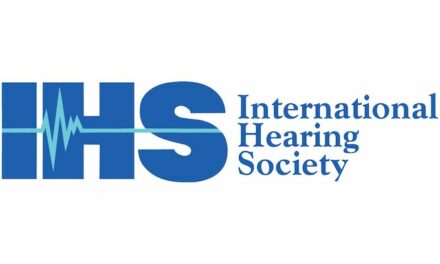Imagine an enjoyable—and educational—vacation with Uncle Sam, in the form of our tax laws, picking up part of the tab. That’s right, every audiologist, hearing instrument specialist, business principal, office manager, and employee in that practice or business can legitimately claim an income tax deduction for the expenses paid or incurred for attending trade shows, conventions, and meetings.
Much has been said and written about the benefits of attending events, such as the International Hearing Society (IHS) 60th Annual Convention, Academy of Doctors of Audiology (ADA) Meeting, and American Academy of Audiology (AAA) convention—as well as the numerous state, regional, and scientific conferences. Largely unheralded, however, are the tax-related benefits everyone attending should enjoy. Quite simply, Uncle Sam and our tax laws will underwrite a portion of the costs associated with attendance at any trade show, convention, or meeting.
Tax Deduction Essentials for Hearing Care Conventions/Meetings

Mark E. Battersby is a tax and financial freelance writer and advisor formerly enrolled to practice before the IRS, and is the author of four books. His office is located in the suburban Philadelphia community of Ardmore, Pa.
Professional conferences broaden your expertise. Thanks to our tax laws, the government will pick up the tab for a sizable portion of your expenses while attending meetings, trade shows, or conventions—if you follow the rules. Generally, all that is required in order to qualify for convention-related tax deductions is that you be able to show, if asked, that attendance at the trade show, meeting, convention, or other event benefited your hearing care business or practice.
An important consideration or caveat to the convention expense deduction is that it is not available for the expenses of attending a convention or meeting related to investments or other income-producing property. On the plus side, the Internal Revenue Service (IRS) recently updated the rules for deducting the expenses incurred while traveling on business, including those for convention travel.
Business and pleasure. The tax rules clearly state that all travel expenses are tax deductible if the trip to the meeting or convention was entirely related to the hearing care practice. So long as the trip is “primarily” for business purposes and, while at the meeting or convention, you extended your stay for a vacation, made a nonbusiness side trip, or had other nonbusiness activities, you may still deduct your practice-related travel expenses.
If, on the other hand, the trip was primarily for personal reasons, such as a vacation, the entire cost of the trip is a nondeductible personal expense. Naturally, you can deduct all expenses incurred while at your destination that are directly related to attending the meeting, trade show, or convention.
Getting there. If business related, the expenses incurred while traveling to the site of that meeting, convention, trade show, or other event are, of course, tax deductible. The tax-deductible travel expenses include such expenditures as the cost of traveling between your home and the site of the event. Also included are the expenses of taxicabs, commuter buses, and airport limousines; lodging and meals; cleaning; telephone; and even tips. Additionally, all of the costs associated with attending the event itself are deductible.
Entertainment. Although the cost of meals and lodging while away from home for business travel or attending meetings, conventions, and trade shows is deductible, at least so long as they are not “lavish or extravagant under the circumstances,” the deduction for meals is limited to 50% of the total expenditure. Food and beverage costs incurred in the course of travel away from home fall within the scope of the tax law for meal and entertainment expenses that generally limits the deduction to 50% of such expenses.
The 50% rule is applied only after determining the amount of the otherwise allowable deductions. For instance, the portion of a convention-related meal that is lavish and extravagant must first be subtracted from the meal cost before the 50% reduction is applied. Related expenses—such as taxes and tips in the case of meals and other charges, and room rental and parking fees in the case of “entertainment” expenses—must be included in the total expense before applying the 50% reduction. Naturally, allowable deductions for transportation costs and other convention or trade show-related expenses are not reduced.
What if by sea? Although the cruise ship industry is not too happy about it, for years our tax rules have permitted only a limited tax deduction for expenses incurred for attending conventions on US cruise ships. The deduction is limited to $2,000 for all cruise-related convention expenses incurred during a tax year. This limited deduction is available only:
- If all ports of call for the cruise ship are within the United States, or a US possession;
- If the attendee can establish the convention was directly related to the active conduct of his/her health care practice; and
- If certain specified information is included with the annual income tax return.
What if overseas? The rules are quite clear in saying no tax deduction is permitted for the expenses incurred attending a convention, seminar, or meeting held outside the “North American Area.” However, it’s possible for you to attend such an event if it can be established to the satisfaction of the IRS that it is directly related to the active conduct of a taxpayer’s trade or business, and that it is reasonable for the meeting to be held outside the North American area.
This is an area where a good tax attorney comes in handy. If you have sufficient reason for attendance, a letter from the sponsoring organization, written approval of your employer, and documentation and history of the event (eg, where it was previously held, etc), along with a detailed expense report, you have an excellent argument for a deduction.
Bringing Company
Should any attendee’s spouse, family members, or others accompany them to a meeting, trade show, or convention, either the attendee or his/her practice can deduct their travel expenses. But only if that individual:
- Is actually an employee of the practice;
- Has a bona fide business purpose for the trip; and
- Would otherwise be allowed to deduct the convention expenses.
In order for a bona fide business purpose to exist, the audiologist, hearing instrument specialist, or their business must prove a real business purpose for the individual’s presence. Incidental services, such as typing notes or assisting in entertaining, is no longer enough.
Consider audiologist John Smith who, along with his wife Mary, drove to Chicago to attend a convention. Because Mary is not an employee of John’s hearing care practice, and even if her presence served a bona fide purpose, her expenses are not tax deductible.
Michael pays $115 per night for a double room. A single room costs $90 per night. He can deduct the total cost of driving his car to and from Chicago, but only $90 per night for his hotel room. If he uses public transportation, he can deduct only his fares.
As an alternative to the actual cost method, both self-employed hearing care professionals and employees can deduct a standard amount—a so-called “per diem allowance”—for their daily meals and incidental expenses while attending a convention. However, even when this standard meal allowance is used, records must be maintained proving the time, place, and business purpose of any travel or convention attendance. Unfortunately, if your employer is related to you or is an incorporated hearing care practice in which you are more than a 10% principal, the standard meal allowance can’t be used.
In general, the IRS-approved per diem rates are those paid by the federal government to workers on travel status. However, instead of using the actual per diem rates for each locale, a simplified “high-low” per diem (under which there is one uniform per diem rate for all “high-cost” areas within the continental United States) may be used. Under the optional high-low method for travel after October 1, 2010, the high-cost area per diem rate is $233, with a per diem rate of $168 for lodging and $65 for Meals and Incidental Expenses (M&IE).
An optional method for the non-reimbursed. A Revenue Procedure introduced by the IRS provides an optional method for both self-employed hearing care professionals, as well as employees who are not reimbursed by their employers, to use in computing the deductible costs paid or incurred for business meal and incidental expenses. Thus, while attending a convention or trade show under an all-inclusive plan where meals are included, employees and self-employed hearing care professionals may claim a legitimate tax deduction for incidental expenses of $5 per day without the need of substantiating that claimed amount.
Backing Up the Convention Expense Deductions
In order to claim any tax deductions, an attendee must be able to prove that the expenses were actually paid or incurred. In fact, the following expenses, which have been deemed by the IRS as particularly susceptible to abuse, must generally be substantiated with adequate records or sufficient corroborating evidence:
- Expenses with respect to travel away from home (including meals and lodging);
- Entertainment expenses; and
- Business gifts.
Meals and incidental expenses while away from home on business—especially those related to attending a trade show or convention—are a legitimate tax deduction, either the actual amounts spent or the standard M&IE rate provided by the government.
Although the actual amount of the deduction can be taken from tables published by the IRS, it remains necessary to prove (through adequate records or sufficient corroborative evidence) the time, place, and business purpose of the convention-related travel. Documentary evidence, such as receipts or paid bills, is not generally required for expenses that are less than $75. However, documentary evidence is required for lodging expenses.
Writing Off Education, Fun, and Business
Imagine reaping business benefits, education, and enjoyment wrapped up in one trip. In reality, the agenda of the convention does not have to deal specifically with your hearing care practice or business; it is enough that you can reasonably be expected to gain some professional or business benefit from attending that event. Best of all, thanks to our tax rules, Uncle Sam will pick up a part of the cost of attending those events.
Editor’s Note: As with any tax advice, be sure to check with a tax accountant or attorney to verify that the tax breaks discussed here pertain to your own particular business situation.
Correspondence can be addressed to HR or to Mark E. Battersby at .




